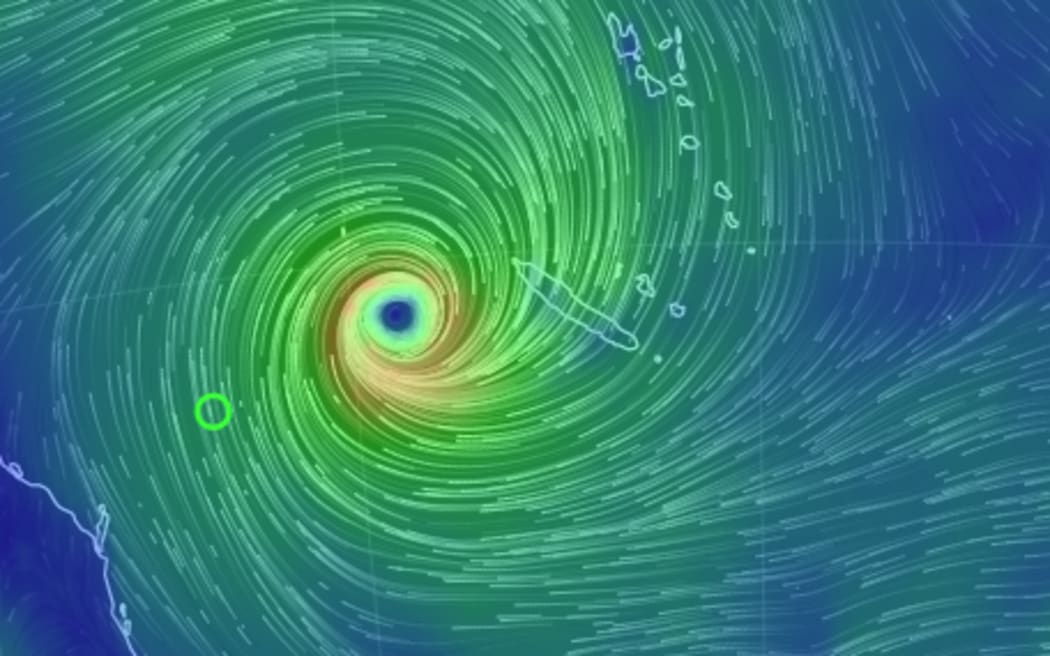We know – all too well now – that tropical cyclones can cause huge amounts of destruction in the South Pacific.
But might they also be a source of marine life?

Cyclone Oma at midday on February 20, 2019 Photo: earth.nullschool.net/
That’s the question Dr Pete Russell of the University of Otago is trying to answer.
Pete has been tracking tropical cyclones in the Pacific, looking for a particular kind – those that result in phytoplankton blooms.

Dr Pete Russell. Photo: Claire Concannon / RNZ
By looking at storm track data that shows the path of tropical cyclones, Pete can predict whether they will result in a phytoplankton bloom.
Satellite images of ocean colour, tuned to the chlorophyll A in phytoplankton, then give confirmation.
Learn about how blooming cyclones can help predict tropical cyclones in a warmer South Pacific Ocean (and the particularly large bloom event of 2019) in the episode below.
- Read the research paper discussed in this episode here.
Follow Our Changing World on Apple Podcasts, Spotify, Stitcher, iHeartRADIO, Google Podcasts, RadioPublic or wherever you listen to your podcasts


